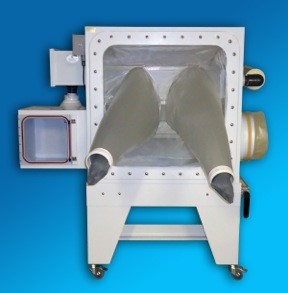Step #1: Time and That One Key Person to Manage it Time. To put it in one word, starting a germ-free gnotobiotic isolator colony, takes time — lots and lots of time. From planning, to mustering the resources together, designing, and obtaining funding, it is time that is the principal component of the process. I’ll deviate from my overly simplistic description to elaborate a bit. It is fundamental and absolutely necessary to commit to having full time staffing for the creation of any germ-free isolator. It cannot be managed by part-time staff or graduate students. To be successful requires hiring one key person who will run the operations. As the primary investigator, finding that person should almost immediately follow your initial impetus to start such a project. Not only will this person be insurmountably helpful once the project begins, but he/she should also be there to plan what equipment is needed, hire staff (if more than a tiny facility is planned), make sure enough space and resources are allocated, and to layout the work flow pattern. This key person is obsessive in the pursuit of perfection. To the beginner, the uninitiated, this person appears to be wasting time on the smallest of details. To a big picture person, the meticulousness is painful to watch, but, in this industry, it’s the small oversights that lead to failure. Maintenance and routine observation of minutia that may escape a researcher being pulled in 20 different directions should be the purview of this key person. They will see the pinhole leak, the autoclave cycle that failed, the leaky cap, or the faulty door gasket. Make no mistake: this sucks a person’s time like the vortex of a black hole, but it will make or break your success. For the investigator who is busy with the high-level science, writing, teaching, and attending meetings, this will all go unseen. It doesn’t take a village to start a germ-free isolator colony, but it does take at least one fastidious, detail oriented, and impossibly well-organized individual. This person might be difficult because they have a tendency not to delegate tasks and do everything themselves. This type of person isn’t easily satisfied. If they have staff working under them, they watch them as if under a microscope. From a manufacturers point of view, I know this type well. They send hand schematics of what they want, they follow up again and again, and they ask so many questions it’s impossible to keep track without a score card. They demand top quality and quick resolutions to their issues. I get messages all hours of the day and night, leaving me wondering when they sleep. They drive me crazy with their relentless pursuit of perfection. In short, they take nothing for granted. Undoubtedly, they make it difficult, but much less difficult than trying to resolve an issue once an error has shipped. If you’re planning a lab and you don’t have the person I described, start the search process now! Step #2: to be continued…
1-800-947-5226
[email protected]

